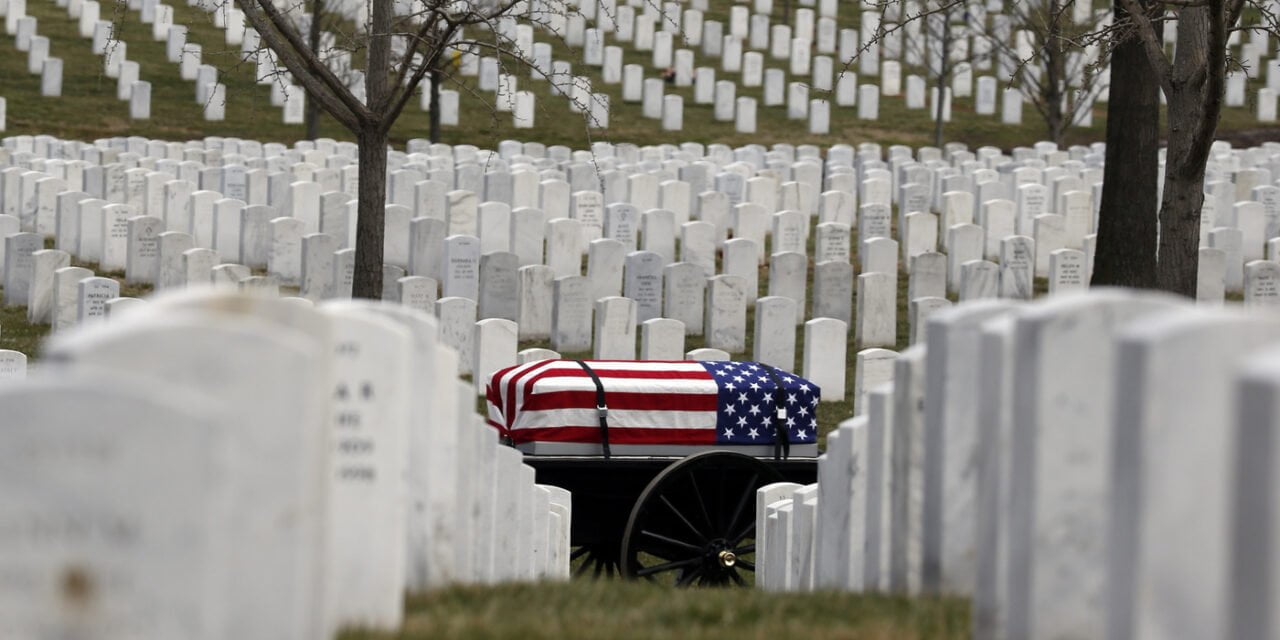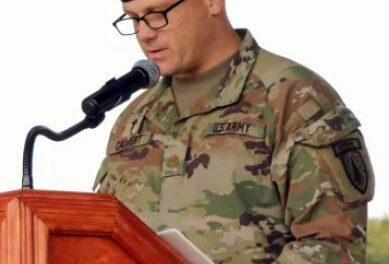
The Global War on Terrorism Memorial – a Tribute to Lost Wars

In one of the few bipartisan efforts in Congress, more than 120 members of the House are co-sponsoring legislation calling for the construction of a memorial on the Mall in Washington to honor the many Americans who fought, got permanently injured or died in our War on Terrorism. The Global War on Terrorism Memorial (GWOTM) would cover numerous conflicts throughout the world where the United States had “boots on the ground” – especially in the Middle East.
That presumably would include two major wars in Iraq, battles in Syria and the longest war in American history in Afghanistan – where my Marine grandson lost his life.
Being a member of a Gold Star family, I fully support honoring all those – like my grandson – who volunteered to defend American interests and security even when the interests and security were not always obvious. We should honor their service and sacrifice, for sure.
While I fully support the creation of the Global War on Terrorism Memorial, there is a sad irony to such an honor.
When honoring the men and women who served in World War I and World War II, there was a dual purpose – honoring those who served AND our nation’s critical leadership in defeating the authoritarian madmen and their dreams of dominating the world with oppression and violence. We clearly won those wars. Our enemies had to sign unconditional surrenders. They replaced the warmongers with democratic governments that now thrive in Germany, Japan and elsewhere.
The Global War on Terrorism, however, will follow a newer tradition of erecting memorials to wars we did not win.
Although we never signed a surrender, we clearly left the fields of battle in defeat. In Korea, we signed a cease fire. Officially, we are still in a state of war with North Korea. In Vietnam, we cut and ran – leaving many of our Asian allies behind to die in the killing fields.
In the first Iraq War, we stopped Saddam Hussein from taking Kuwait. But we left him in power to engage in terrorism throughout the Middle East and among his own people. And, in the second Iraq War, we toppled Hussein. But we pulled out our troops without securing the victory – leading to the rise of ISIS. We withdrew from Syria – leaving that nation to be reclaimed by the brutal Bashar al Asaad under the influence of Russia and Iran.
After President Carter refused to defend the Shah of Iran – an important ally – and allowed the Persian nation to be taken over by the brutal anti-American Islamic regime, we passed on every opportunity to use the military against the despotic Iranian leadership. We essentially failed to take our war on terrorism to the heart of international terrorism.
Even as we consider a monument to America’s war on terrorism, we are still at war in Afghanistan. It is our nation’s longest war. There has never been a definition or strategy for victory. It has been a war of attrition – somehow trying not to lose without really trying to win.
Even now, the discussion regarding Afghanistan is simply about when should we leave. It already appears that the Taliban will seize power the minute the last American boot steps onto an escape plane.
It has been more than 75 years since America has won a significant war. But we have been engaged in one conflict after another ever since.
Oh … there were a couple of victories. American troops ousted the evil Manuel Noriega from Panama and prevented a Communist takeover in Belize. Ironically, no one is suggesting we memorialize those victories. Perhaps they were too easy, too swift and without the international implications of the bigger conflicts. But not celebrating victories as we erect monuments to defeats is more than a little ironic.
We have often heard our Presidents remind us that we are the richest and most powerful nation in the world – by far. We have the mightiest military – second to none. And yet we cannot win wars against folks who fire machine guns from the back of pick-up trucks.
Shortly after my grandson lost his life in Afghanistan, I wrote of my hope that he wouldn’t have died in vain. As we now talk only of a withdrawal – a euphemism for surrender – I feel my grandson did die in vain. We can appreciate his noble intentions and personal sacrifice – and build memorials to his service. But the failure to win the war leaves me with a sense of bitterness toward those in Washington who wasted so many lives and treasure on endless wars we chose not to win.
So, there ‘tis.



























I’m truly sorry to hear about the loss of your grandson, however, since becoming a DS, I’ve been able to see the evil for what it is. Never in my life, would I have thought I’d find out so much bad stuff from the fbi, cia, and more. Keep your faith in God. This is a digital warfare going on now and the strong, Need to pull nearer to God for protection. All need to pull nearer to God because when the news finally breaks, it’ll be mostly satanic. May God bless you all, listen out for he is talking to us more. For those who have an ear, listen to what the Holy Spirit is trying to tell us.
Undeclared wars such as Korea, Vietnam, and the various and sundry conflicts in the Middle East should never be contemplated or entertained when the desire to attain convincing and decisive victories are lacking by those charged with conducting the hostilities! Such lack of commitment to total victory in any and all undeclared conflicts leads to the inevitable necessity to engage the same foes for like or similar reasons at another time with far more serious consequences. Applying the philosophy of General Eisenhower during the Allied invasion of Europe in 1944 against the Nazis, “TOTAL VICTORY…NOTHING LESS!”